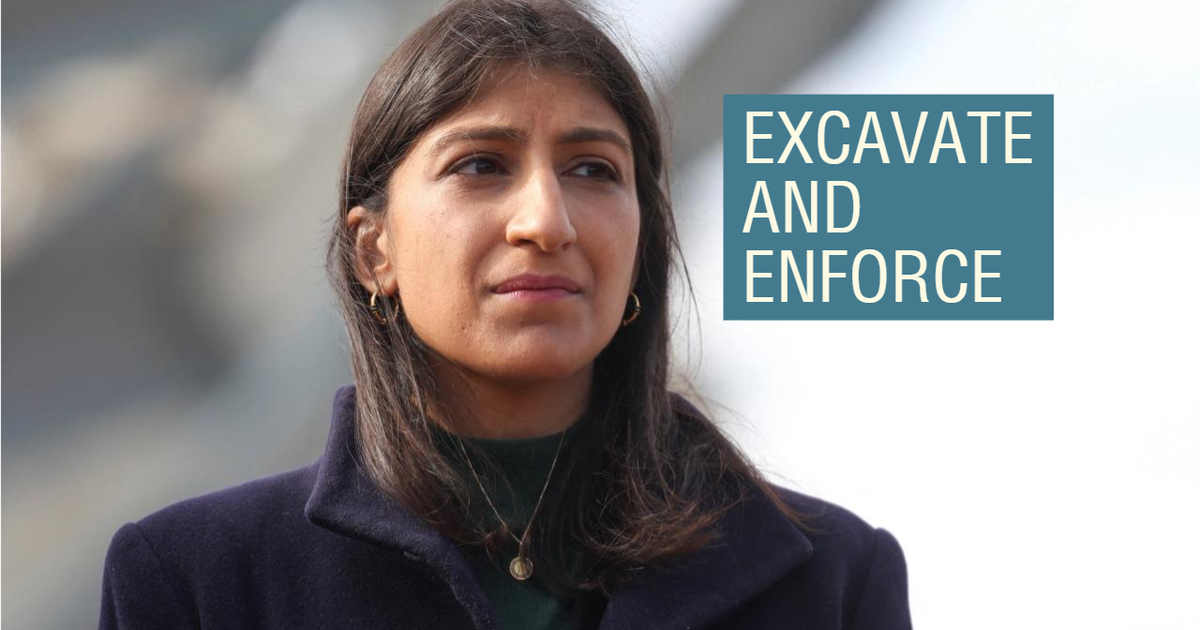This view of America’s glorious past is indispensable to understanding MAGA’s appeal — and the extremism of MAGA youth. After all, the slogan, Make America Great Again
implies the loss of greatness. This sense of loss provides the intellectual and — crucially — emotional foundation of the right’s authoritarian turn.
It’s hard to overstate how much the new right idealizes America’s past. Online spaces are full of memes and images, for example, of families from the 1950s in idyllic settings, often with the caption, This is what they took from you.
The memes don’t define who they
are, but I quickly learned in the Clubhouse conversation that they
very much included me. My support for free speech, for example, opened the door for depravity, and my defense of due process hindered the rough justice necessary to reclaim America.
The new right contrasts its vision of a glorious past with a miserable present. This month, Matt Walsh, a popular right-wing podcaster with millions of social media followers, wrote: It’s an empirical fact that basically everything in our day to day lives has gotten worse over the years. The quality of everything — food, clothing, entertainment, air travel, roads, traffic, infrastructure, housing, etc. — has declined in observable ways.
This is, incidentally, where MAGA meets MAHA (Make America Healthy Again). Parts of MAHA are rooted in the conviction that American health care is fundamentally broken to the point of being dangerous. That is the root of the belief — held by 31 percent of Republicans and Republican-leaning Americans — that vaccines are more dangerous than the diseases they’re designed to prevent.
Walsh’s statement, however, is the opposite of an empirical fact.
In reality, it’s empirically wrong on many, many counts.
Americans live longer, enjoy higher median wages, live in larger and more luxurious homes, and enjoy more civil liberties and greater access to justice than even the recent past. The starter homes of the 1950s — tiny places that often lacked central air and other modern utilities — would be considered poverty-level accommodations now.
Violent crime is much lower than in decades past, the divorce rate has decreased from its highs in the early 1980s, and the abortion rate (despite recent increases) is far below its early 1980s peaks.
But even as I type these words, I realize their inadequacy. You cannot fact-check a person out of a feeling, and without question, the people I talked to felt — deep in their bones — that something had gone fundamentally wrong in the United States of America and in their lives. And a dry recitation of contrary facts not only did nothing to assuage this feeling of fear and loss; it was positively enraging — cringe, in a word.
To use an example wielded against me time and again, How can you possibly say that America is better than it’s been when drag queens are reading to kids in public libraries?
To that I say, as my friend Kevin Williamson put it in a recent piece addressing the new right’s nostalgia, More drag queens, sure, but fewer slaves — the moral trajectory of Western civilization is not entirely in the direction of failure, you know.
[]
One disadvantage of your teenage and early adult years is that you tend to experience adversity without perspective. It’s hard to place your own experience in a larger context when you haven’t yet experienced that context.
And that’s exactly where we — the older generations — have failed…..
As a Cold War kid, I grew up in tense times. The threat of open war with the Soviet Union — and possible nuclear extinction — haunted our daily lives. In the midst of crises and controversies, I took my emotional cues from my parents and from the adults around me in my small Kentucky hometown.
They were never Pollyannas — how could you be? — but they also never panicked. I definitely experienced anxiety, but they provided the context so that I could understand that we’d endured similar crises and survived before. The times were dangerous, but there was also more stability than I could perceive. The result is that I learned to approach the problems of the moment with determination, not despair. Problems are real, but hope endures.
— David French, What Happens if You Refuse to Recognize That We Are in a Death Spiral
New York Times Opinion, 14 December 2025




